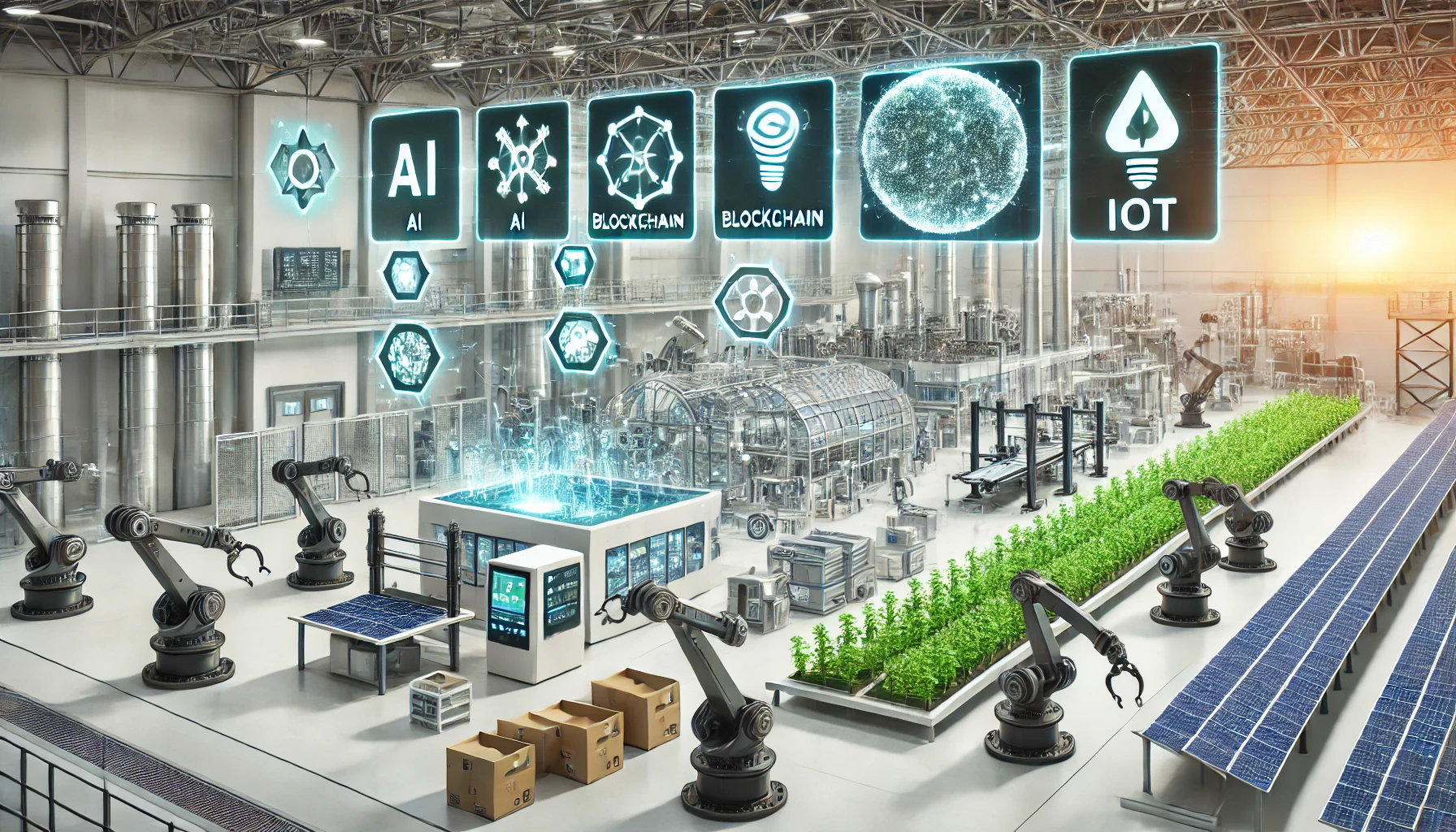Digital Technologies Driving Sustainable Development: Aligning Business with Global SDGs
Digital technologies like AI, blockchain, and IoT are pivotal in achieving key Sustainable Development Goals (SDGs) by enhancing business processes and promoting sustainability. This study highlights effective strategies for integrating these technologies into production systems to align with global sustainability objectives.

The role of digital technologies in achieving the Sustainable Development Goals (SDGs) outlined in the United Nations' 2030 Agenda has become a focal point of academic and scientific debate. A recent study conducted by researchers from the Department of Industrial Engineering at the University of Salerno provides a comprehensive analysis of how digital technologies intersect with business functions and processes to meet these global objectives in production systems. The study, published in Sustainable Production and Consumption, employs a mixed-method approach that combines an extensive literature review with the application of the Apriori algorithm, a machine learning technique used to identify patterns and relationships within large datasets. This approach allowed the researchers to explore the "digital technologies - business functions and processes - SDGs" nexus in a detailed and structured manner.
Exploring the Impact of Key Technologies on SDGs
The research analyzed 2,496 sustainable business practices (SBPs) across 42 business processes, supported by 11 key digital technologies, and their contribution towards the 17 SDGs. The technologies examined include artificial intelligence (AI), geospatial technologies, blockchain, the Internet of Things (IoT), and 3D printing, among others. The findings suggest that these technologies play a crucial role in achieving specific SDGs, particularly those related to clean water and sanitation (SDG 6), affordable and clean energy (SDG 7), responsible consumption and production (SDG 12), and climate action (SDG 13). For instance, AI and geospatial technologies emerged as versatile tools capable of being applied across various business processes to optimize production, enhance energy efficiency, and reduce waste, thereby contributing directly to sustainable development. The study underscores the growing importance of integrating digital technologies into business strategies, not just for economic efficiency but as a critical component of sustainability.
Unveiling Key Patterns with the Apriori Algorithm
The use of the Apriori algorithm in this study was pivotal in uncovering 13 robust patterns that link specific digital technologies with business processes and SDGs. These patterns reveal the most significant and impactful combinations, providing actionable insights for both managers and policymakers. Among the most notable findings was the association between AI in operations control and the achievement of SDG 7, which highlights AI's potential in managing energy consumption and improving efficiency in production systems. This connection suggests that AI, when implemented effectively, can significantly contribute to reducing greenhouse gas emissions and promoting the use of renewable energy. Similarly, the study highlights the role of blockchain technology in ensuring transparency and traceability in supply chains, which is crucial for achieving SDG 12's goals of responsible consumption and production. Blockchain's ability to securely record transactions and track the lifecycle of products makes it an invaluable tool in promoting sustainable business practices, particularly in industries where supply chain integrity is paramount.
Operational Focus: Where Technologies Make the Biggest Impact
The study also explores how different digital technologies support various business functions and processes in the context of sustainability. Operations control, operations planning, production of goods, and service provision are identified as the primary business functions where digital technologies are most frequently applied. This focus on operational functions is indicative of the critical role these processes play in achieving sustainability objectives. For example, the use of AI and IoT in operations control allows companies to collect and analyze vast amounts of data, leading to more informed decision-making and more efficient use of resources. In the production of goods, technologies like robotics and 3D printing are highlighted for their ability to reduce human labor, minimize waste, and improve energy efficiency, thereby supporting the transition to more sustainable production models.
A Roadmap for Aligning Business Strategies with Global Goals
The study's findings have significant implications for the strategic implementation of digital technologies in business. By identifying the most effective combinations of technology, business process, and SDG, the research provides a roadmap for organizations aiming to align their strategies with global sustainability goals. This alignment is not just a matter of corporate social responsibility but is increasingly becoming a necessity for businesses seeking to remain competitive in a rapidly evolving global market. The research also emphasizes the need for a more integrated approach to digital technology adoption, where sustainability considerations are embedded into the core of business operations rather than treated as an afterthought.
The study contributes to the growing body of literature that highlights the critical role of digital technologies in achieving the SDGs. The findings offer valuable insights for managers and policymakers, suggesting that the strategic adoption of these technologies can drive significant progress towards sustainability goals. The research underscores the importance of a holistic approach, where digital technologies are not only tools for improving efficiency but are also leveraged to address some of the most pressing environmental and social challenges facing the world today. As the global community continues to grapple with these challenges, the integration of digital technologies into production systems will undoubtedly play a pivotal role in shaping a more sustainable future.
- FIRST PUBLISHED IN:
- Devdiscourse










